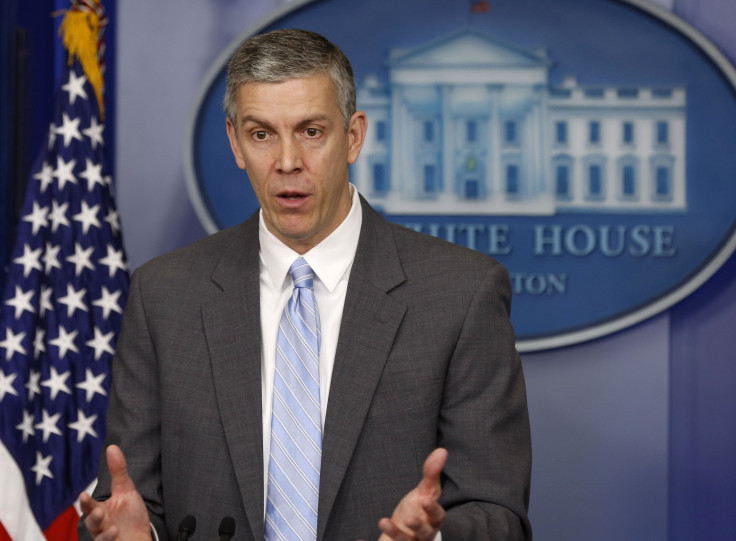No Child Left Behind 2015: Obama Administration Wants To Scrap Education Law, Keep Annual Testing

The battle over mandatory standardized testing raged on Monday as education secretary Arne Duncan outlined his plans to revamp the Elementary and Secondary Education Act. Among his proposed changes were increased access to pre-K and teacher resources. But there was one controversial aspect he didn't want to modify: The requirement that students undergo testing every year.
"I believe parents, teachers, and students have both the right and the need to know how much progress all students are making each year toward college- and career-readiness," Duncan said, the Associated Press reported. "That means all students need to take annual, statewide assessments that are aligned with their teacher's classroom instruction in reading and math in grades 3-8, and once in high school."
Duncan, speaking at Seaton Elementary School in a historically African-American neighborhood, said he would try to limit unnecessary testing but wouldn't budge on the requirement. It's part of his plan to scrap No Child Left Behind, which he called "tired" and "prescriptive." The law, signed in 2002 by former President George W. Bush, is the latest iteration of the Elementary and Secondary Education Act and has been up for reauthorization since 2007, POLITICO reported.
Republicans, however, want a tougher revision of the legislation. Sen. Lamar Alexander, R-Tenn., a former education secretary himself, has plans to debut a redone version this week that would likely take the testing mandate out of the law.
"Of course we should be asking the question: Are there too many tests? Every teacher and parent is asking that question, and if there’s going to be a requirement for 17 tests in reading, math and science, we need to make sure that’s justified," Alexander said in a statement provided to the Huffington Post.
Duncan's speech also included proposals for increasing federal funds for education, switching up teacher evaluations and giving teachers more support, the New York Times reported. In his upcoming budget proposal, President Barack Obama plans to include $2.7 billion for education -- $1 billion of which would be designated for schools serving low-income populations of children.
© Copyright IBTimes 2025. All rights reserved.






















